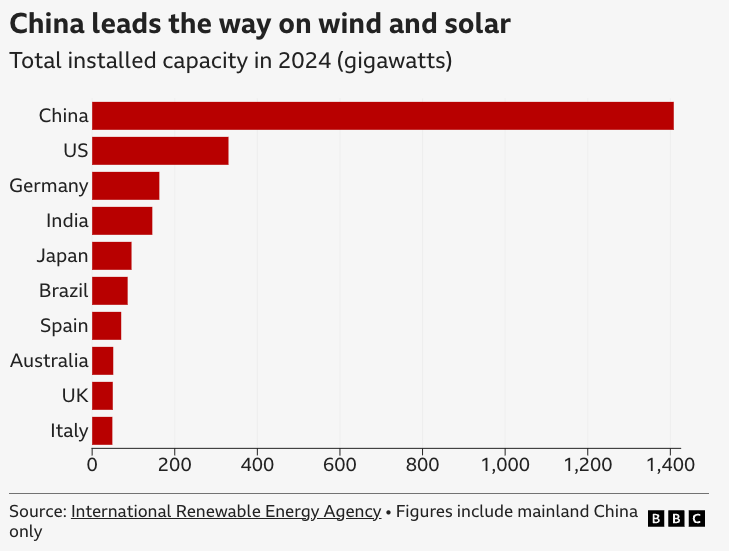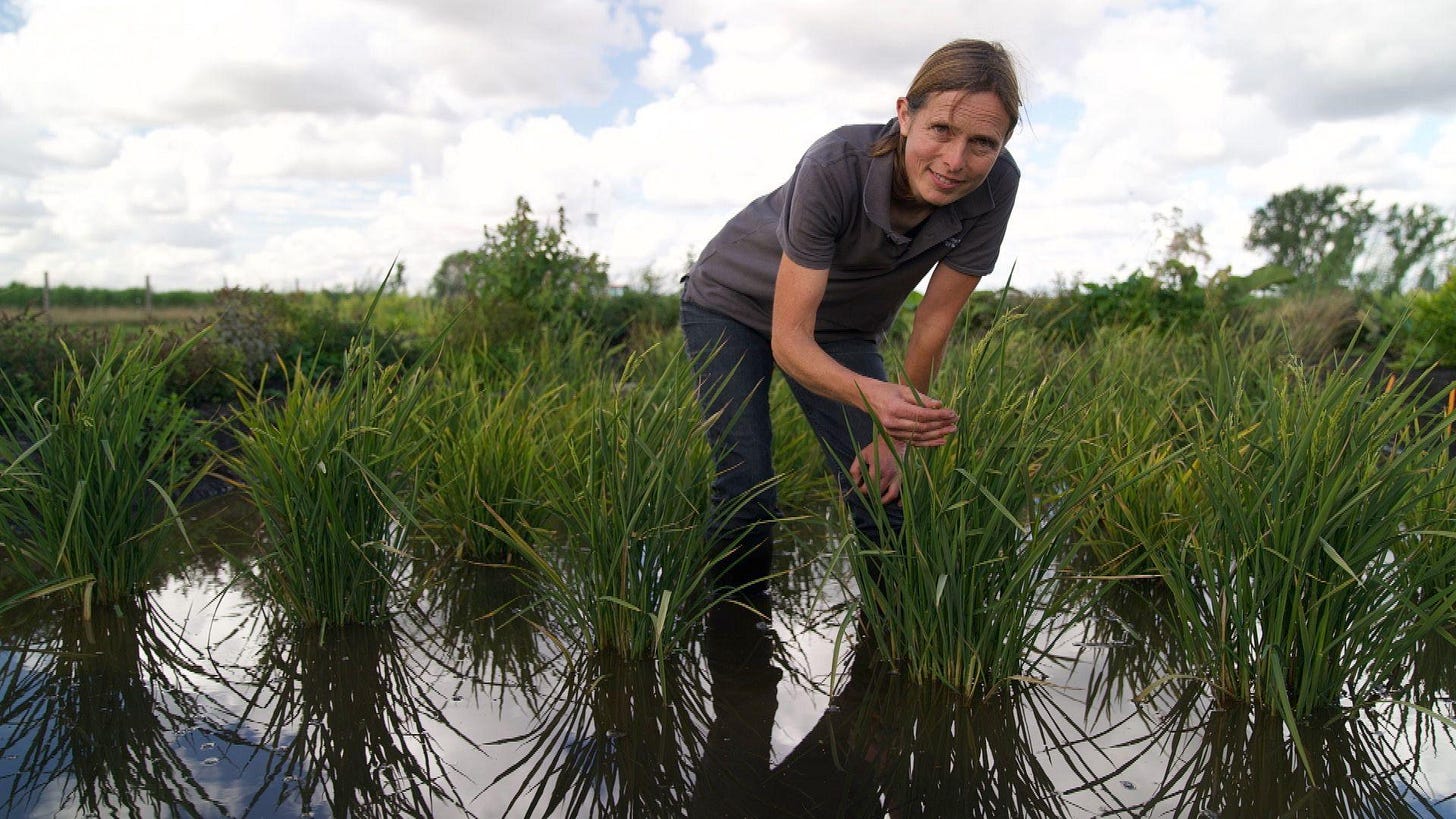😯 The Grumpy Optimists Returns? #140
The Grumpy Optimist is indeed back, and it's here to bring you proof that progress is still happening, even when it feels like it isn’t.
Oh hello,
Yes, this really is the Grumpy Optimists coming back into your inbox after nearly a year away. A lot has changed since then, both in the world and for me, so let’s catch up a little.
This blog started in 2020 to rewrite the climate change narrative, shifting from relentless negativity to stories of optimism and progress (with a tad of grumpiness allowed).
Last year I made the decision to stop releasing a weekly newsletter as I fell out of love with writing and quite frankly a lot of things. There are a number of reasons for this, but after years of working weekends building Zevero as well as writing over 130 episodes of the blog, I was burnt out and, honestly, depressed. It turns out it’s hard to write optimism when you’re feeling mostly grumpy yourself.
It’s not bad news though. Since the new year I’ve started antidepressants, got a therapist, spent more time outdoors, made things with my hands, and slowly found myself in a great place. Side note, I’m always happy to talk to anybody about breaking that stigma of men’s mental health.
As a result, I’ve had an itch to re-start this blog for the last few months, so now, it’s time to bring optimism back, weekly.
So, what can you expect?
Positivity, personality and consistency.
The blog format hasn’t changed. Every Monday you’ll get a dose of “we can fix this,” a hit of positive climate news, a song to start the week, and maybe a few of my thoughts on the world around us. My aim is to bring you proof that progress is still happening, even when it feels like it isn’t.
But I also want to share more about me, George, the person behind the blog. You might not find that bit interesting (valid) but thankfully, for you, being here and reading this is a choice (but pls stick around).
The brand has changed too, I’ve had the awesome Zeke help me move on from the old logo I made on Canva into a brand. Pretty cool right?
Finally, because we all need positive news weekly, this newsletter is going back to being weekly. I’ve been guilty of making things easier over the last year. I’ve been guilty of making things easier over the last year - like choosing to stop this blog or not training as much as I could - but I’ve slowly rediscovered that motivation to get back to doing hard things. The dopamine you get from effort beats anything scrolling Instagram or TikTok can offer (I do still love a good scroll session though, we can’t be perfect).
So if you’ve read this far, thank you and welcome to the first edition of the new Grumpy Optimists. Here’s to choosing that mindset as you start your week.
Now, let’s dig in.
👀 News to make you feel good this week
🌏 China sets absolute reduction targets for the first time, but they’re not enough. China, the world’s biggest emitter, has pledged for the first time to cut total greenhouse gas emissions by 7–10% by 2035, from peak levels that may already have been reached. The plan includes boosting non-fossil energy to over 30% of consumption and expanding wind and solar capacity to six times 2020 levels. President Xi announced the target at the UN, positioning it as a pragmatic step amid US backsliding and EU divisions. China does currently lead the way on wind and solar installs.
📊 No one asked, but everyone’s reporting anyway. A report by PwC has found that corporate sustainability reporting is rising even as rules soften. Investor and consumer pressure are doing the job regulators won’t amid CSRD reductions for reporting across Europe.
🇪🇺 Europe cuts emissions, but that doesn’t mean problem over. The emissions from the EU are down 37% since 1990, with 45% of all energy used in the EU generated by renewables. That’s great news, but it’s not the only news. While emissions are reducing, biodiversity is also failing with 81% of habitats in a poor or bad state. Ecosystems are pretty bleak, mainly driven by the way we produce our food.
In light of this, I actually hosted a webinar with the fantastic regenerative agriculture company, Wildfarmed, and others to talk about the challenge facing our food production system. You can watch that here.
🛰️ Money finally leaves oil’s group chat. Public funding for international fossil fuel deals fell by up to 78% in 2024 thanks to the 2021 Clean Energy Transition pact.
⚡ Plugged in, not powered up yet. Britain’s electrification dashboard shows rising EVs and heat pumps, but grid updates lag. Progress is steady but the voltage of ambition still needs a boost.
🌾 UK farm trials rice farming to prevent soil erosion. Farmers near Ely have planted the UK’s first rice crop with the aim to slow peat erosion. Over three meters of soil has eroded in the Cambridgeshire after the Fens were drained for agriculture over 400 years ago. Now, the wind and the weather has eroded it to the point where there is only 60cm that remains. This, by the way, is in an area that produces over a third of the UK’s vegetables.
This matters because the area’s peaty soils are estimated to release 2.6 million tonnes of carbon to the atmosphere annually, about as much as half a million cars. That’s mind boggling.
The farmers hope that the 20 acres of land they have trialled will provide an example of how farmers and food production can become more resilient in the face of climate change while also helping bring back biodiversity.
I must admit, I saw this article and initially thought more of a, holy crap, how can we grow rice, it must mean that temperatures are getting too high than a heck yeah. But this led me down the path of learning more about paludiculture and how it could help save peatlands. It’s pretty cool.
📚 Open data: the only thing politicians can’t delete. Despite Trump’s best efforts to quieten the climate community, or the big ‘con job’ as he said at the UN a few weeks ago, climate scientists are keeping research open, mirrored, and accessible.
🚗 London meets legal air pollution limits for the first time. Government data shows that nitrogen dioxide (NO₂) levels in London have fallen within legal limits for the first time since 2010. The improvement is largely credited to the supposedly much hated ultra-low emission zone (ULEZ). Experts once said it would take 193 years for London to reach this point, but the target has been achieved in just nine. As somebody who runs, cycles and lives in London, this is great news. I only wish the results were more physically visible so people could appreciate them more.
👟 Just do it, but if you’re Nike don’t document it. Nike has dropped its annual corporate responsibility report, opting for scattered online data instead. Efficiency or evasion? Hard to tell. The optics are off either way.
🌲 Oxygen Conservation takes on stewardship of Brewdog’s Kinrara Estate. Oxygen Conservation has become the new custodian of Kinrara Estate, a 9,200-acre site on the edge of the Cairngorms National Park. The estate, first controversially restored by BrewDog through woodland and peatland projects, will now see expanded rewilding and regeneration under Oxygen’s management. This marks the company’s 12th estate, bringing its portfolio to over 50,000 acres across the UK.
A video to watch in memory of Jane Goodall
That’s all from me for this week. But I will leave you on an absolute stormer of an album that had me in a chokehold of bad dancing and feel good vibes since it came out. Olivia Dean, you’re brilliant.
Welcome back to the Grumpy Optimists, folks. It’s really quite nice to have you here. If anything here made you feel great about the week, do share this with a friend, colleague or if you don’t like it, then somebody you hate.
George 💚





🎉🎉🎉
Great news you’re back, I’ve been waiting for this day!